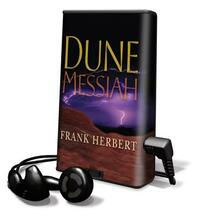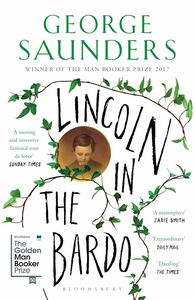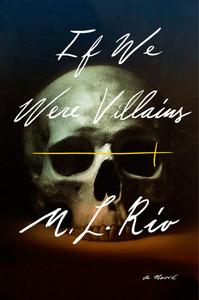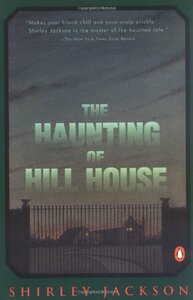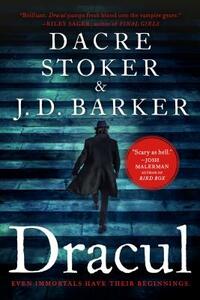You need to sign in or sign up before continuing.
Take a photo of a barcode or cover
matt_and_cheez's Reviews (493)
Not at all what I was expecting. I thought it would be more of a memoir-style novel detailing the aftermath of Willie Lincoln's death and how it impacted the President and his family. While this is one component of the story, it is utterly something other.
The story is told through snippets of historical (some real, some created) documents, and through the experiences of souls in a sort of purgatory. The ghosts themselves have vivid, grotesque forms, and the physics of their world is completely strange and often difficult to imagine completely.
When Willie Lincoln joins their bardo (a type of in-between world for the recently dead) in the cemetery in Georgetown, the other residents are shocked to see the boy's father visiting the body night after night. Heartbreaking, witty, daring, and at times scandalous, this novel is worthy of the prize it won.
The story is told through snippets of historical (some real, some created) documents, and through the experiences of souls in a sort of purgatory. The ghosts themselves have vivid, grotesque forms, and the physics of their world is completely strange and often difficult to imagine completely.
When Willie Lincoln joins their bardo (a type of in-between world for the recently dead) in the cemetery in Georgetown, the other residents are shocked to see the boy's father visiting the body night after night. Heartbreaking, witty, daring, and at times scandalous, this novel is worthy of the prize it won.
I'd never choose a war book to read, because it's really not my thing. But I received this one in a subscription box, so felt like I should give it a try.
The war aspects still weren't my cup of tea, but the story of the main narrator, a doctor with a dysfunctional family, kept me interested. The book is also translated beautifully from Italian, which kept me entranced enough to enjoy reading it.
The war aspects still weren't my cup of tea, but the story of the main narrator, a doctor with a dysfunctional family, kept me interested. The book is also translated beautifully from Italian, which kept me entranced enough to enjoy reading it.
Not a book I would normally think to read, but I received it as a random subscription box book, so I gave it a try. It has To Kill A Mockingbird vibes, but darker, more suspenseful, and a lot gorier.
The suspense kept me reading, but overall it was OK. The cast of characters was diverse, but full of some cliché and exaggerated traits. And at some points, particularly at fearful scenes and deaths, the characters' reactions and emotions were unrealistic.
I'd recommend for a summer read because it's very quick and not boring at all. Despite the setbacks I'm satisfied.
The suspense kept me reading, but overall it was OK. The cast of characters was diverse, but full of some cliché and exaggerated traits. And at some points, particularly at fearful scenes and deaths, the characters' reactions and emotions were unrealistic.
I'd recommend for a summer read because it's very quick and not boring at all. Despite the setbacks I'm satisfied.
This novel left me feeling very conflicted. There were many things I thought could've been done better, but at the same time I finished this within 24 hours, which is rare for me.
Bottom line: I was going in to this novel expecting a five-star review. I do recommend it, but I would not go in expecting it to be another The Secret History.
*spoilers start here*
.
.
.
.
.
.
I understand the reasons why this book is compared to Donna Tartt's The Secret History: the elite school setting, a group of friends who are wrapped up in a deadly mystery. That's all fine and good. However, I found the similarities a bit much, even approaching what I would call copying Tartt's work. Tight group of humanities students at a tiny school, the older eccentric mentor who shares intimate tea-time lessons, even background characters who were classics students. These components by themselves are understandable, but the combination of them plus more frustrated me.
I find it rather offensive that this novel is put on the same level in some ways as The Secret History. It's like comparing an amateur artist's work to something hanging in a museum. The pacing was too fast at times, the characters' motives unrealistic and even non-existent at times, and their actions didn't seem justified or properly set-up. Also, the dialogue was tiring for me.
I understand Shakespeare is a major component of this book, as the characters are in a theater program that focuses exclusively on the bard's works. However, I found it irritating that the characters would break into verse during normal conversation. To be honest, I would often skim those parts which probably made me lose some nuance in what they were trying to say to each other.
I also found frustrating the lack of Richard's motive. Why was he acting evil all of a sudden? Just out of pure spite because his "friends" got roles that he thought should've been his? It doesn't really make sense to me. Similarly, I found the consequences of Oliver lying to cover for James unrealistic. Wouldn't James have told the truth to save his friend? And if the police didn't actually believe him, would they truly have charged him with murder? I don't know, something just made me have to suspend my disbelief somewhat.
There were also parts of the novel I found entirely unnecessary- Oliver's sister's eating disorder, for example. That added almost nothing to the plot other than his parents' not being able to afford his tuition. That aspect I thought could've been left out as well. Sure, Oliver needing to do work-study led him to finding damning evidence of Richard's murder, but I think this could have been made less complicated.
Ok, so I did rate this book highly. As much as I rolled my eyes while reading it, I found it impossible to put down. One major reason was the emotional tension between best friends Oliver and James. Rio peppered in moments that were almost homo-erotic. Learning about their love for each other was very touching and made Oliver's "martyrdom" a tiny bit more believable.
Bottom line: I was going in to this novel expecting a five-star review. I do recommend it, but I would not go in expecting it to be another The Secret History.
*spoilers start here*
.
.
.
.
.
.
I understand the reasons why this book is compared to Donna Tartt's The Secret History: the elite school setting, a group of friends who are wrapped up in a deadly mystery. That's all fine and good. However, I found the similarities a bit much, even approaching what I would call copying Tartt's work. Tight group of humanities students at a tiny school, the older eccentric mentor who shares intimate tea-time lessons, even background characters who were classics students. These components by themselves are understandable, but the combination of them plus more frustrated me.
I find it rather offensive that this novel is put on the same level in some ways as The Secret History. It's like comparing an amateur artist's work to something hanging in a museum. The pacing was too fast at times, the characters' motives unrealistic and even non-existent at times, and their actions didn't seem justified or properly set-up. Also, the dialogue was tiring for me.
I understand Shakespeare is a major component of this book, as the characters are in a theater program that focuses exclusively on the bard's works. However, I found it irritating that the characters would break into verse during normal conversation. To be honest, I would often skim those parts which probably made me lose some nuance in what they were trying to say to each other.
I also found frustrating the lack of Richard's motive. Why was he acting evil all of a sudden? Just out of pure spite because his "friends" got roles that he thought should've been his? It doesn't really make sense to me. Similarly, I found the consequences of Oliver lying to cover for James unrealistic. Wouldn't James have told the truth to save his friend? And if the police didn't actually believe him, would they truly have charged him with murder? I don't know, something just made me have to suspend my disbelief somewhat.
There were also parts of the novel I found entirely unnecessary- Oliver's sister's eating disorder, for example. That added almost nothing to the plot other than his parents' not being able to afford his tuition. That aspect I thought could've been left out as well. Sure, Oliver needing to do work-study led him to finding damning evidence of Richard's murder, but I think this could have been made less complicated.
Ok, so I did rate this book highly. As much as I rolled my eyes while reading it, I found it impossible to put down. One major reason was the emotional tension between best friends Oliver and James. Rio peppered in moments that were almost homo-erotic. Learning about their love for each other was very touching and made Oliver's "martyrdom" a tiny bit more believable.
Incredibly disturbing, with enough thriller element to make it hard to put down. I'll be thinking about this book for a long time. I didn't rate it 5 stars because a good portion of it involved FBI/police scenes and intense action sequences, which really aren't my thing. But if you do like that kind of novel, as well as horror similar to Stephen King, then you'll love this book. I plan to read more of Simmons in the future.
I wasn't sure what to expect of this novel, but I didn't find it exactly thrilling or scary until the very end and twist that happened.
This short novel is almost entirely character-driven and we get a very detailed look in the psyche of the Eleanor, the main protagonist. We are left questioning the nature of the paranormal events.
This novel is known to be the origin of some of the haunted house tropes used in modern horror, and I could definitely see that. If you like a "Clue"-like vibe and subtle psychological horror, then you may like this.
This short novel is almost entirely character-driven and we get a very detailed look in the psyche of the Eleanor, the main protagonist. We are left questioning the nature of the paranormal events.
This novel is known to be the origin of some of the haunted house tropes used in modern horror, and I could definitely see that. If you like a "Clue"-like vibe and subtle psychological horror, then you may like this.
